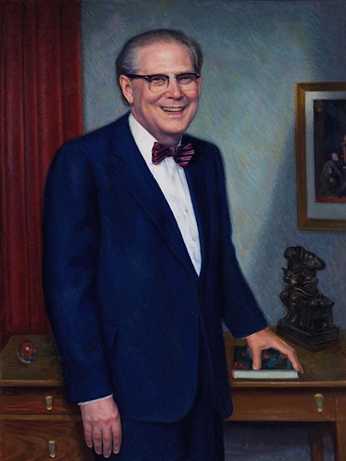 Abraham M. Lilienfeld was born in New York City. He received his A.B. in 1941 from the Johns Hopkins University, his M.D. in 1944 from the University of Maryland, and his M.P.H. in 1949 from the Johns Hopkins University School of Hygiene and Public Health. After an internship and residency at West Baltimore General Hospital, Lilienfeld served in the U.S. Army. In 1950, he joined the faculty of the Johns Hopkins University School of Hygiene and Public Health as a lecturer. He earned the rank of assistant professor of epidemiology in 1952. In 1954, he left Johns Hopkins to serve as associate professor of preventive medicine at the University of Buffalo School of Medicine. Lilienfeld returned to Johns Hopkins in 1958 as professor of chronic diseases in the school of hygiene and public health. In 1961, he became professor and chairman of the department of chronic diseases, a position he resigned in 1970 in order to become professor and chairman of the department of epidemiology. He resigned the chairmanship in 1975 but was active as a teacher and scientist until his death in 1984. Lilienfeld was recognized internationally as an expert in cancer research and as a pioneer in developing epidemiological methods for the study of chronic diseases. The library at the Johns Hopkins University School of Hygiene and Public Health is named in his honor.
Abraham M. Lilienfeld was born in New York City. He received his A.B. in 1941 from the Johns Hopkins University, his M.D. in 1944 from the University of Maryland, and his M.P.H. in 1949 from the Johns Hopkins University School of Hygiene and Public Health. After an internship and residency at West Baltimore General Hospital, Lilienfeld served in the U.S. Army. In 1950, he joined the faculty of the Johns Hopkins University School of Hygiene and Public Health as a lecturer. He earned the rank of assistant professor of epidemiology in 1952. In 1954, he left Johns Hopkins to serve as associate professor of preventive medicine at the University of Buffalo School of Medicine. Lilienfeld returned to Johns Hopkins in 1958 as professor of chronic diseases in the school of hygiene and public health. In 1961, he became professor and chairman of the department of chronic diseases, a position he resigned in 1970 in order to become professor and chairman of the department of epidemiology. He resigned the chairmanship in 1975 but was active as a teacher and scientist until his death in 1984. Lilienfeld was recognized internationally as an expert in cancer research and as a pioneer in developing epidemiological methods for the study of chronic diseases. The library at the Johns Hopkins University School of Hygiene and Public Health is named in his honor.